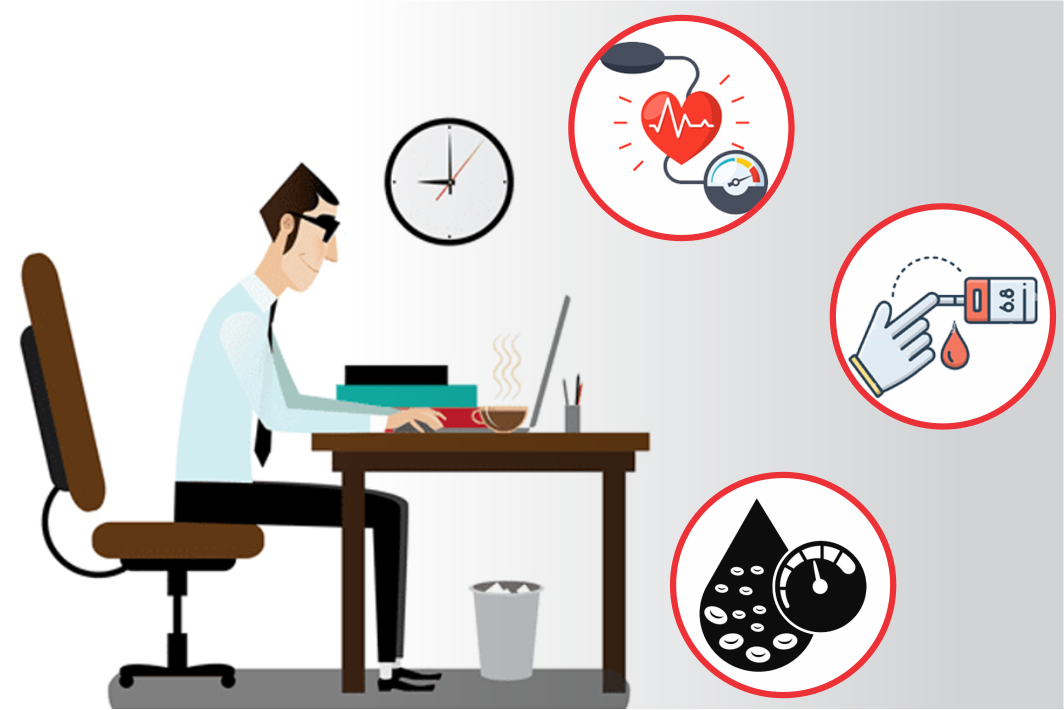The maladies of long-time sitting
Grabbing
a seat while boarding public transport is like winning a lottery. This is apart
from knowing that an allotted seat is at the workplace. Sitting for long hours
in one place affects health, whether on public transport or at work. A
sedentary lifestyle also has its part of disadvantages. Leaving apart public
transport, sitting with the same posture at the workplace, constantly staring
at the computer/laptop, watching television for long hours, and being hooked to
mobile phones have drastically ill effects on health. Also, people driving for
long hours are at high risk of developing specific side effects.
Symptoms
Sitting
in a place for long may lead to obesity, increased blood pressure, high blood
sugar, and accumulation of excess body fat around the waist. Chances of having
a rise in cholesterol level, cardiovascular complications, atherosclerosis, the
buildup of plaque in the arteries, impaired blood circulation, and sometimes
cancer are the likely symptoms.
Low
health risk arises if one sits in one place for less than four hours. Chances
of medium risk while sitting for four to eight hours, high risk for eight to
eleven hours, and more than eleven hours lead to very high risk. Some studies
have suggested the risk of dementia in individuals sitting in one place for
more than 11 hours or so. Adding to it, consuming alcohol and eating junk foods
while being in one position for long hours invites cardiovascular diseases.
Sitting,
also sometimes referred to as the new smoking, has a host of health issues.
Chances of mental health risks are also associated with back pain.
Way out
Mobility
is the need of the hour. To avoid too much sitting in one place, one should
take time to move around after every 30 minutes. Standing while attending phone
calls, going in for a standing desk, etc., can positively affect one’s health.
Some workplaces have gyms to ensure that their employees remain healthy. Though
time may be a constraint, it is advisable to access the treadmill in the
office, if there is any, to go and spend some time walking over it. Any form of
movement, be it leisurely, helps burn calories, lose weight, and increase
energy. Physical activity also helps in muscle mobility.
With
the advent of two-wheelers and cars, walking has become less. This is where
cycling can be a suitable mode of transport for short commuting.
Undoing health risks
Although
technological innovations have made things easier for humankind, they have also
made people more lethargic. The time has come to introspect on what harm can be
done while sitting in one place for a long time. Until then, it is advisable to
offer seats to a fellow passenger after sitting in one place while commuting.
Similarly, taking a break of five minutes and going for a brisk walk will keep
diseases at bay.
|
Do’s |
Don’t’s |
|
While commuting, have a sit for some time and offer
sit to fellow passenger |
No need to sit for long hours while commuting |
|
Take breaks every hour to go for a brisk walk |
Never sit in one place while working in front of a
computer/laptop/mobile |
|
Cycling while commuting to work, if feasible |
Avoid traveling in a car as much as possible |





